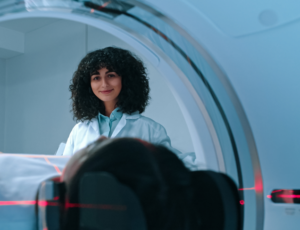The Role of Medical Imaging in Diagnosing and Treating Complications from AIDS

World AIDS Day, observed annually on the first day of December, is a time to raise awareness about HIV/AIDS, honor those who have lost their lives to the disease, and support individuals who are living with HIV. At ImageCare Radiology, we recognize the importance of advanced imaging in managing the health of individuals with HIV/AIDS. Our cutting-edge imaging technologies, including CT scans in New Jersey, play a critical role in diagnosing and monitoring complications associated with HIV/AIDS, helping patients and their healthcare teams make informed decisions about treatment.
HIV (human immunodeficiency virus) attacks the immune system, making the body more vulnerable to infections and certain cancers. Without proper treatment, HIV can progress to AIDS (acquired immunodeficiency syndrome), a condition where the immune system is severely compromised. While advancements in antiretroviral therapy have transformed HIV into a manageable condition for many, individuals with HIV/AIDS still face unique health challenges that require careful monitoring.
Medical imaging is essential for evaluating the complications that can arise from HIV/AIDS. CT scans, or computed tomography scans, provide detailed cross-sectional images of the body, helping physicians detect abnormalities such as infections, tumors, or organ damage. For example, CT scans are commonly used to assess lung conditions like pneumonia, which is more prevalent in individuals with weakened immune systems.
PET-CT (positron emission tomography combined with CT) is another valuable tool, particularly in oncology and infection imaging. It helps identify and monitor cancers, such as lymphoma, which are more common in individuals with HIV. By combining metabolic and structural imaging, PET-CT provides a comprehensive view of disease activity, aiding in precise diagnosis and treatment planning.
Nuclear medicine techniques, such as SPECT (single photon emission computed tomography), are also beneficial in detecting brain infections, evaluating cardiac function, and identifying other complications related to HIV/AIDS. These advanced imaging methods are instrumental in delivering timely and effective care for patients.
At ImageCare Radiology, we are proud to offer these state-of-the-art imaging services, including CT scans in New Jersey, in a compassionate and patient-centered environment. Our experienced team is committed to providing accurate diagnostic insights to support patients living with HIV/AIDS and their medical teams.
This World AIDS Day, we reaffirm our commitment to improving the lives of individuals affected by HIV/AIDS through exceptional imaging services. Early detection and ongoing monitoring are key to managing complications and ensuring better health outcomes. Trust ImageCare Radiology for the expertise and care you deserve.